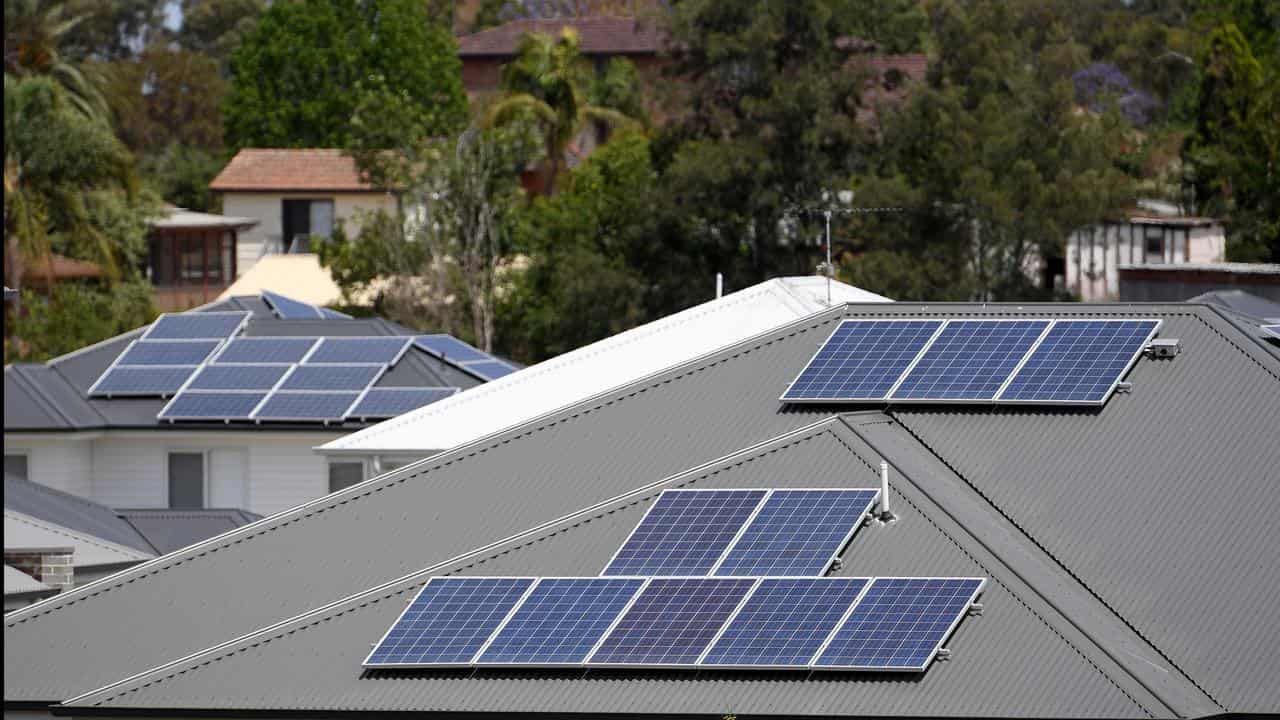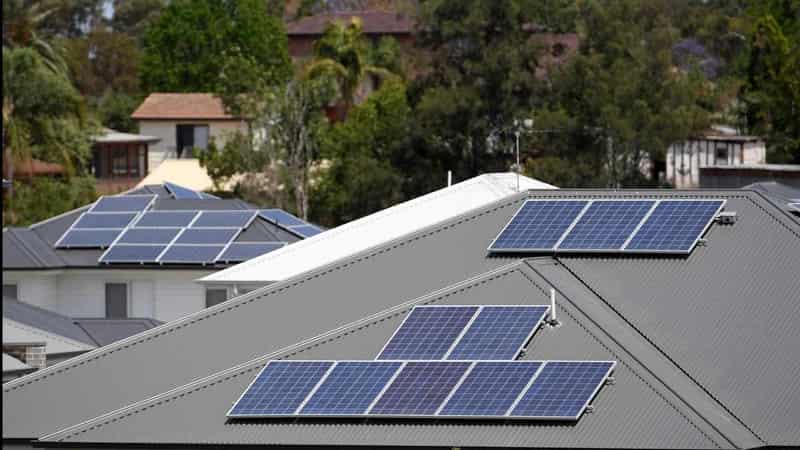
Consumers should be able to reduce their power bills and take control of how and when they use energy under a new strategy for homes and workplaces.
In a few years, the average Australian house should be working to save families money and make them comfortable on a hot summer day, according to the National Energy Performance Strategy released on Friday.
Changes in the so-called demand side of the energy system - homes, businesses and industry users - are coinciding with a massive overhaul of the supply of electricity as ageing coal-fired power plants close down.
Assistant Energy Minister Jenny McAllister said households are "partners in the renewable energy transformation".
"We want solar on rooftops, batteries in garages to work hand-in-hand with the rest of the energy market," she said.

But the projected increase in electric vehicles and greater commercial and industrial electricity use is expected to more than double electricity consumption in the national energy market by 2050.
"Daily peak demand is also expected to continue to increase over time, adding pressure to peak time reliability and peaking costs if not addressed," the strategy warns.
The plan also acknowledges affordability, protection of consumer rights, cyber security, and tariff reform will be vital.
Network tariff reform is aimed at integrating household rooftop solar and batteries into the grid "as efficiently as possible", which for many household solar investors has meant fewer cents per sunbeam.
The federal government allocated $1.7 billion in energy performance measures in the 2023/24 budget, and the strategy identifies an additional $2 billion in broader work across the economy to support energy efficiency.
The Australian Renewable Energy Agency has estimated that flexible demand, including large-scale and electric car charging and batteries, will generate up to $18 billion in savings for consumers by 2040 from lower capital costs and shrinkage in wholesale energy prices.
While fossil fuel "remains a significant part of our energy use", reductions in electricity consumption through increased energy performance or renewable energy generation will also help to significantly reduce emissions, the strategy said.
Analysis by the Grattan Institute cited in the document found that for most households, switching gas appliances for all-electric would provide cost savings over 10 years, even after accounting for the up-front purchase price of the new stove or hot water system.
"It is about making every watt count, to help consumers reduce bills and reach net zero," Senator McAllister said.
Getting homes and businesses to be more efficient in how they generate, store and use energy should also make the network's overhaul cheaper for the taxpayer.
Reductions in peak demand can reduce the need to build additional big-ticket items, allowing governments to minimise the cost and potential controversy over new assets and transmission lines.
The federal plan combines efficiency, flexible demand and performance for the first time and draws on 135 submissions from businesses, industry, consumer groups and consultation with state and territory governments.









